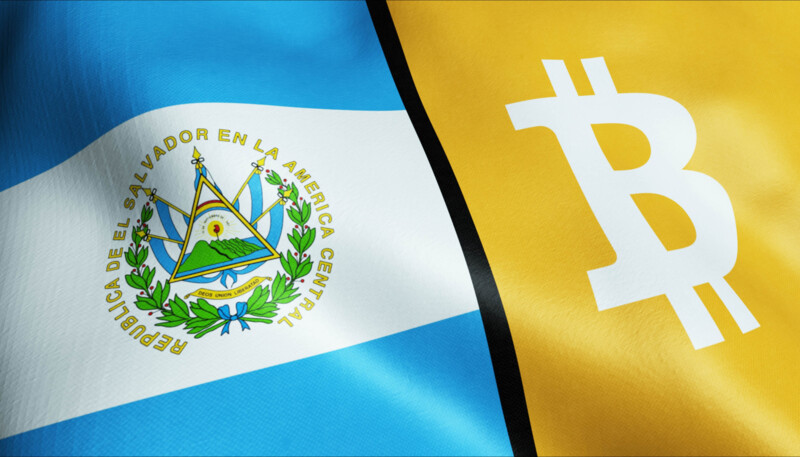Le Salvador, petit État d’Amérique centrale, a été le premier pays au monde à adopter le bitcoin comme devise légale, aux côtés du dollar, en septembre 2021. Quelques mois plus tard, le bilan est mitigé : malgré les efforts du gouvernement, le bitcoin ne parvient pas à s’imposer. Il reste peu utilisé par la population qui n'est pas convaincue.
Plusieurs mesures incitatives
Une récente étude réalisée par 3 chercheurs du National Bureau of Economic Research des États-Unis, Diana Van Patten, Fernando E. Alvarez et David Argente, permet de tirer un premier bilan de l’usage du bitcoin au Salvador, 9 mois après son adoption en tant que deuxième devise légale du pays.
L’enquête, menée auprès de chefs d’entreprise et de ménages salvadoriens, révèle que le bitcoin reste peu utilisé et ne parvient pas à s’imposer face au dollar, première devise légale du Salvador.
Pourtant, le gouvernement a multiplié les mesures visant à inciter le recours au bitcoin, persuadé que cette cryptomonnaie pouvait répondre à des enjeux multiples, qu’il s’agisse d’améliorer les conditions d’accès au système bancaire, d’accroître l’indépendance vis-à-vis du dollar américain, de simplifier les transferts de fonds ou encore d’attirer les investisseurs étrangers.
Ainsi, pour inciter les Salvadoriens à régler leurs achats en bitcoin, le gouvernement a développé l’application Chivo, un portefeuille numérique, offrant la somme de 30 dollars en bitcoin à toute personne décidant de la télécharger.
L’utilisation du bitcoin reste marginale
Si 60 % des Salvadoriens ont téléchargé Chivo, le succès apparent de l’application est à nuancer. En effet, l’incitation financière a été déterminante pour les trois quarts des personnes ayant téléchargé l’application : sans cette modeste somme à la clé, ils n’auraient pas franchi le pas. Une décote de 6 % sur l’essence était également proposée à ceux qui paieraient en bitcoin via Chivo.
Une fois ces avantages consommés, seuls 40 % des Salvadoriens continuent à utiliser Chivo. Mais cette utilisation reste peu intensive : sur un laps de temps d’un mois, l’utilisateur médian ne reçoit ou n’effectue aucun paiement, d’après l’étude des chercheurs américains.
L’application a majoritairement été téléchargée au mois de septembre 2021, et les nouveaux utilisateurs sont très peu nombreux depuis le début de l’année.
20 % des entreprises salvadoriennes acceptent les paiements en bitcoin ; parmi elles, 11 % seulement ont vu leurs ventes augmenter grâce à cette cryptomonnaie. Le paiement en bitcoin ne concerne que 5 % des ventes des entreprises acceptant ce type de règlement. Une fois les paiements en bitcoin reçus, 9 entreprises sur 10 les échangent contre des dollars, pour réduire les risques liés à la volatilité des cryptomonnaies.
Il faut dire que la chute du cours du bitcoin, qui a perdu 44 % depuis novembre dernier, n’est guère rassurante pour les Salvadoriens, qu’il s’agisse des ménages ou des entreprises.
Le bitcoin ne séduit pas davantage pour les transferts de fonds en provenance de l’étranger, qui représentaient tout de même près de 24 % du PIB du Salvador en 2020. Au mois de février 2022, 1,6 % des transferts de fonds depuis l’étranger étaient effectués en bitcoin, soit le niveau le plus bas depuis l’adoption du bitcoin comme devise légale par le pays.
L'étude du National Bureau of Economic Research « Are Cryptocurrencies Currencies? Bitcoin as Legal Tender in El Salvador ».
